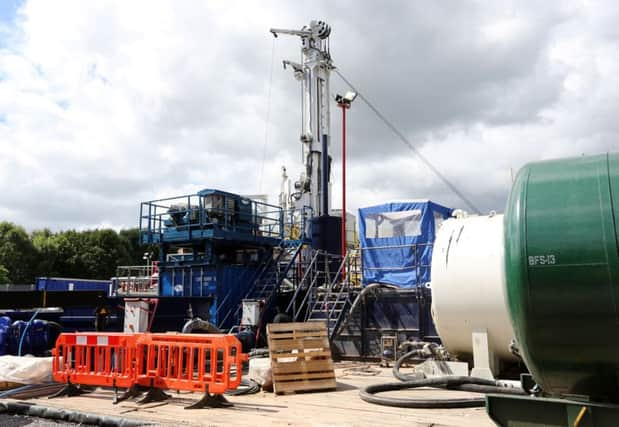Kevin Hollinrake: Why fracking may be the opportunity of our lifetime


One of the UK’s first applications for shale gas exploration, delivered by means of a process known as fracking, has been submitted at Kirby Misperton in my constituency. Like many local residents, I conducted extensive research that clearly identifies the economic benefits to our country but also safety concerns and the potential for an industrialisation of our landscape.
Puzzled and frustrated by the polarised arguments for and against, I didn’t seem to be able to find anyone who actually seen shale gas operations first hand so I decided to go to Pennsylvania, where the industry is big business, to see for myself.
Advertisement
Hide AdAdvertisement
Hide AdI funded my own trip to allow me free rein to visit and listen to whomever I chose including anti-fracking campaigners, community groups, regulators and academics. All these people has lived or worked with fracking for many years and had various, direct experiences of the industry. I wanted to find the facts and reality. I had questions I wanted answering for myself and for my constituents.
Was the trip successful? Yes, I believe so.
Did I see examples of where things had gone wrong? Yes.
Do I believe that we can exploit shale gas in a safe and discreet manner? Yes.
Some of the scare stories I heard before I went have some basis in truth. I spoke to people whose water supply was adversely affected. I met residents whose homes were disturbingly close to well sites. I met with campaigners, listened to their concerns and let them share their evidence and experiences.
In Dimock, I saw significant but apparently isolated examples of methane migration into water supplies. Unlike the UK, most US households have private water supplies direct from boreholes. There had been noise, light and traffic impacts to properties and residents were understandably angry. Regulators had been in short supply and, between 2004 and 2012, regulations had originally been inappropriate and mistakes and bad practice had happened.
Advertisement
Hide AdAdvertisement
Hide AdBut this is not a one-sided picture by any means. Many people in the areas near fracking were pleased that the industry had come to town. It has brought economic benefits. There are more jobs, businesses like restaurants have more customers, wages are being spent in local stores and properties are being bought and sold at rising prices.
More people seemed happy about the industry and those against were in a minority holding very specific concerns such as proximity to residential areas.
The countryside I visited was beautiful with rolling hillsides, woodland and in early fall it was truly stunning. There was not a well site at every turn; in fact it was hard to spot them as we drove around.
There were definitely parallels with our own precious North Yorkshire countryside. It was not a spoilt industrialised landscape. There were instances of well pads close to homes and schools, but our planning system in the UK would not let this happen.
Advertisement
Hide AdAdvertisement
Hide AdAs a parent, one story about a link between low birth weight in babies and fracking sites did concern me so I met the author of the report at Pittsburgh University. According to the Professor, the research paper does not prove that the proximity to the wells caused lower birth weights but he does believe it merits further investigation. If there is indeed a connection he told me he feels that the most likely cause is air pollution, methane leakages, gaseous toxins from wastewater ponds that are open to the elements that are still allowable in US regulations. Again, our regulations prohibit this.
The International Energy Agency 2012 report on unconventional gas exploration includes in its golden rules “Recognise the case for independent evaluation and verification of environmental performance”. I argue we need to increase the amount of independent regulators and ensure producers are held accountable open real-time information so that the public can freely monitor any environmental impact.
The public should take comfort from our previous willingness to stop if things go wrong as we did when induced seismic activity occurred in Blackpool in 2011.
I propose that our planning authorities develop local plans and policies for fracking that make sure that any development is sensitive to our landscape and important local economies such as tourism and agriculture. This would include clear guidance on buffer zones with a minimum distance between sites and from towns, villages and schools.
Advertisement
Hide AdAdvertisement
Hide AdI have been asked why do it now, why not see what happens elsewhere? Because of climate change, shale gas exploration has the potential to help move the UK to a low-carbon economy. Like-for-like, the most common fossil fuel used in our power stations, coal, produces twice the greenhouse gases and its sooty emissions kill 1,600 people every year. Revenue from shale gas should be invested in a consistent framework of subsidies to nurture renewable energy and new technologies including carbon capture and storage.
We need frank and open dialogue with local people, we need to plan, analyse and review, but we should not ignore what may be the opportunity of our lifetimes.
• Kevin Hollinrake is the Conservative MP for Thirsk and Malton.